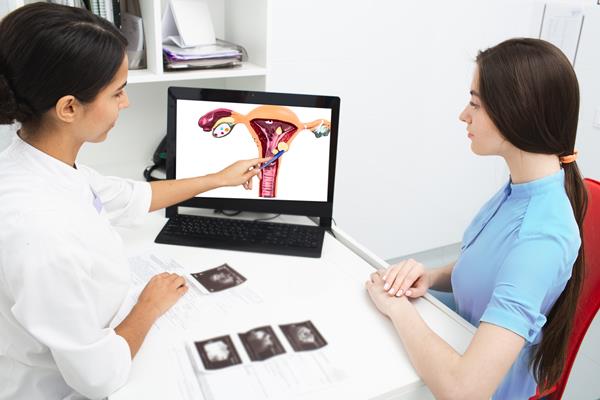Uterine fibroids are noncancerous growths of the uterus that affect an estimated 20-50% of women of reproductive age.
Many women have uterine fibroids sometime during their lives. But you might not know you have uterine fibroids because they often cause no symptoms. Your doctor may discover fibroids incidentally during a pelvic exam or prenatal ultrasound.
When symptoms do exist, they range from mild to very severe:
- Abnormal bleeding between periods
- Pelvic pain or pressure
- Heavy or prolonged menstrual periods
- Pain during intercourse
- Lower back pain
- Frequent urination or difficulty emptying the bladder
If you have pelvic pain that doesn’t go away, have a hard time urinating, or have any type of abnormal bleeding, please schedule an appointment at OBGYN Associates. These symptoms may be a sign of many different gynecologic disorders that could be serious.
Risk factors
There are few known risk factors for uterine fibroids, other than being a woman of reproductive age. Factors that can have an impact on fibroid development include:
- Although any woman of reproductive age can develop fibroids, black women are more likely to have fibroids than are women of other racial groups. In addition, black women have fibroids at younger ages, and they’re also likely to have more or larger fibroids, along with more-severe symptoms.
- If your mother or sister had fibroids, you’re at increased risk of developing them.
- Other factors are onset of menstruation at an early age, obesity, a vitamin D deficiency, having a diet higher in red meat and lower in green vegetables, fruit and dairy, and drinking alcohol, including beer, appear to increase your risk of developing fibroids.
You and your doctor at OBGYN Associates will work together to come up with the best treatment plan. There are many options available to help relieve pain and reduce heavy periods. Surgery to remove fibroids or the uterus is also an option.

